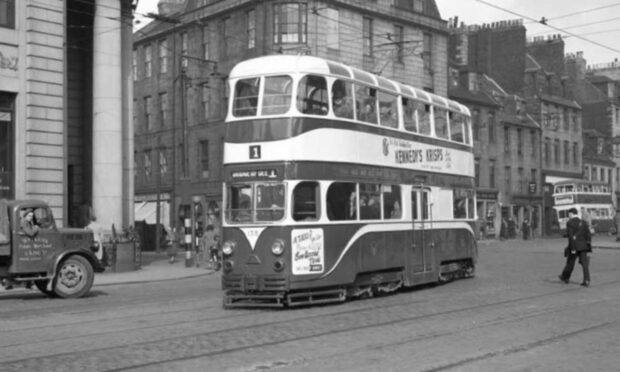Sir, – I see comment in The P&J over the last few days regarding the suggested introduction of trams in Aberdeen.
While I do not live in the city, indeed seldom visit it and also read the Highland edition of The P&J, I can understand the subject of reintroducing trams is controversial especially after the fiasco that accompanied Edinburgh’s situation.
But can anyone explain to me in support of the tram, how a vehicle that can only travel where the tramlines take it, is superior to a bus that can easily avoid any hazard or obstruction that blights its intended route? Without any major alterations, a bus can be rerouted in minutes if need be.
Without getting bogged down discussing fuel sources and emissions and CO2, what is the invisible secret of a tram?
Buses provide a flexible asset and can run on hydrogen, effectively just as “green” as a tram, and there’s no requirement to dig up half your city once the arguments over proposed routes and destinations are decided.
Alastair Armitstead, Achiltibuie, Ross-shire.
Benefits of private land ownership
sir, – You continue to give David Ross column space to peddle his dislike of Scottish landowners, classing them all as people who hold communities to ransom with their power and might. What nonsense !
For years Mr Ross has written along similar lines, using the history of more than 200 years ago as a reason that community ownership is in the best interests of rural Scotland rather than private ownership. He needs to move on and see just how enlightened most landowners are, investing much-needed resources into fragile rural economies and creating employment along the way.
Look at the composition of Highland Scotland and one notices vast tracts of wilderness and, while the countryside might be beautiful, it has a limited income stream. Thus, the economy of scale principle leads to the necessity to own more land to generate more income from it. Just because big landholdings exist, and therefore ownership numbers may be small, is not a reason to split them up. Mr Ross would spend his research time more usefully by actually talking with large landowners and examining their costs and income streams to gauge how difficult it is to make money, even on a large estate. Saying that landowners have a sense of entitlement and power is nonsense unless he can come up with some examples.
Land reformers are full of criticism but short on realistic alternatives, costed and tried and without government support, to make economic sense.
Andrew Dingwall Fordyce, Garlogie House, Westhill.
Wake-up call over our death toll
Sir, – Excess deaths – a phrase that should put the fear of God into each and every one of us. This relates to the number above the average taken over a similar period in previous years. Scotland is sitting at 30% higher than pre-Covid.
At a time when deaths relating to Covid are reducing, this is a giant wake-up call of the impact of the NHS effectively shutting its doors and not seeing patients and not carrying out routine scanning. These deaths are from the likes of cancer and heart disease, many of which would have been treatable and even possibly curable if dealt with earlier.
And this will just be the tip of the iceberg. How many more people will die due to missed opportunities and cancellation of appointments? How many other people are living restricted lives with pain and discomfort?
I am sure that Humza Yousaf will reach for the Covid excuse but there is no excuse for our hospitals, and more importantly our GP practices, not now being open and seeing patients.
Heart issues and cancer can’t be diagnosed over the phone. GPs need to be told by the government to open their doors and get back to doing what they are paid to do. How many more will die from preventable and treatable conditions in the years to come because the SNP took their eye off the ball when it comes to our NHS?
Jane Lax, Pine Lodge, Craigellachie, Moray.
